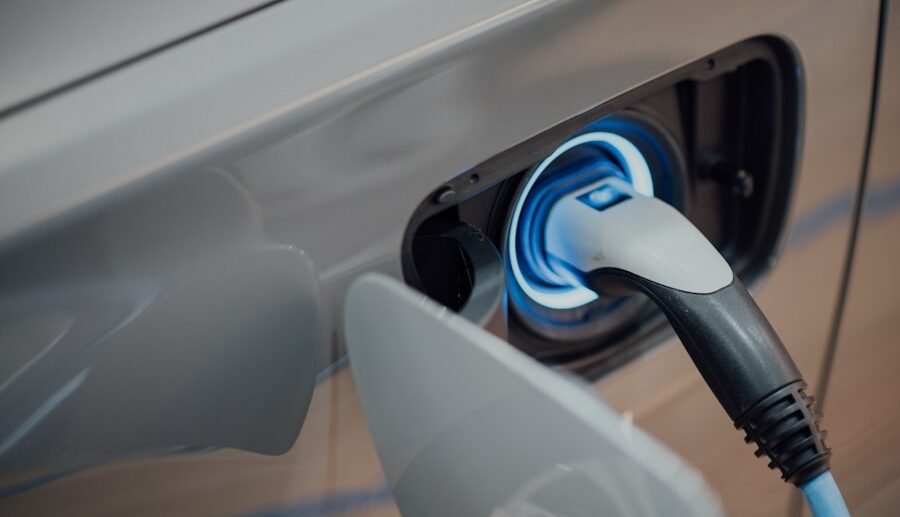The Economic and Environmental Benefits of Driving an EV Car in Thailand

Electric vehicles (EVs) have been gaining popularity in Thailand in recent years as the government and private sector have been promoting the use of clean and sustainable transportation. EVs are vehicles that are powered by electric motors and use rechargeable batteries as their primary source of energy. These vehicles produce zero emissions, making them an environmentally friendly alternative to traditional gasoline-powered cars. In Thailand, the adoption of EVs is seen as a crucial step towards reducing air pollution and greenhouse gas emissions, as well as decreasing the country’s reliance on imported fossil fuels.
The Thai government has been actively promoting the use of EVs through various initiatives, such as tax incentives, subsidies, and infrastructure development. As a result, the number of EVs on the roads in Thailand has been steadily increasing, with more and more consumers and businesses opting for electric vehicles. With the growing interest in EVs, it is important to understand the economic and environmental benefits of driving an EV in Thailand, as well as the challenges and opportunities that come with the widespread adoption of this technology.
Economic Benefits of Driving an EV Car in Thailand
There are several economic benefits to driving an EV in Thailand. One of the most significant advantages is the lower operating costs of electric vehicles compared to traditional gasoline-powered cars. EVs have lower fuel and maintenance costs, as they do not require gasoline and have fewer moving parts that need regular servicing. This can result in significant savings for consumers and businesses over the lifetime of the vehicle. Additionally, the government offers tax incentives and subsidies for EV purchases, making them more affordable for consumers.
Another economic benefit of driving an EV in Thailand is the potential for job creation and economic growth. The shift towards electric mobility has the potential to create new opportunities in manufacturing, infrastructure development, and research and development. As the demand for EVs increases, there will be a need for skilled workers to manufacture and maintain these vehicles, as well as engineers and researchers to develop new technologies and improve existing ones. This can lead to job creation and economic growth in the automotive and related industries.
Environmental Benefits of Driving an EV Car in Thailand
The environmental benefits of driving an EV in Thailand are significant. One of the main advantages is the reduction of air pollution and greenhouse gas emissions. Traditional gasoline-powered cars emit harmful pollutants such as carbon monoxide, nitrogen oxides, and particulate matter, which contribute to poor air quality and respiratory problems. EVs produce zero tailpipe emissions, which can help improve air quality and public health in urban areas.
In addition to reducing air pollution, driving an EV can also help mitigate climate change by reducing greenhouse gas emissions. The transportation sector is a major contributor to carbon dioxide emissions, which are a leading cause of global warming. By switching to electric vehicles, Thailand can reduce its carbon footprint and contribute to global efforts to combat climate change. Furthermore, as Thailand continues to invest in renewable energy sources such as solar and wind power, the environmental benefits of driving an EV will only increase.
Government Incentives and Support for EV Cars in Thailand
The Thai government has been proactive in promoting the adoption of electric vehicles through various incentives and support programs. One of the key initiatives is the reduction or exemption of import duties and excise taxes on electric vehicles, making them more affordable for consumers. In addition, the government offers subsidies for EV purchases, as well as incentives for manufacturers to produce electric vehicles and related components in Thailand.
Furthermore, the government has been investing in infrastructure development to support the widespread adoption of EVs. This includes the installation of public charging stations across the country, as well as incentives for businesses to install charging stations at their facilities. These efforts are aimed at addressing one of the main barriers to EV adoption – range anxiety – by providing convenient and accessible charging options for EV owners.
Challenges and Opportunities for EV Cars in Thailand
While there are many benefits to driving an EV in Thailand, there are also challenges that need to be addressed. One of the main challenges is the high upfront cost of electric vehicles compared to traditional gasoline-powered cars. Despite government incentives and subsidies, EVs can still be more expensive to purchase, which may deter some consumers from making the switch. Additionally, there is a lack of awareness and understanding about electric vehicles among consumers, which can hinder their adoption.
However, there are also opportunities for growth in the EV market in Thailand. As technology advances and economies of scale are achieved, the cost of electric vehicles is expected to decrease, making them more accessible to a wider range of consumers. Furthermore, there is potential for collaboration between the public and private sectors to develop innovative solutions to address barriers to EV adoption, such as financing options and consumer education programs.
Future Outlook for EV Cars in Thailand
The future outlook for electric vehicles in Thailand is promising. As awareness and understanding of EVs continue to grow, along with advancements in technology and infrastructure development, the adoption of electric vehicles is expected to increase significantly in the coming years. The government’s commitment to promoting sustainable transportation and reducing air pollution will further drive the growth of the EV market in Thailand.
Furthermore, as global efforts to combat climate change intensify, there will be increasing pressure on countries like Thailand to reduce their carbon footprint. Electric vehicles are seen as a key solution to reducing greenhouse gas emissions from the transportation sector, making them an important part of Thailand’s sustainable development strategy. With continued government support and private sector investment, the future of electric mobility in Thailand looks bright.
The Role of EV Cars in Thailand’s Sustainable Development
In conclusion, electric vehicles have the potential to play a significant role in Thailand’s sustainable development efforts. The economic and environmental benefits of driving an EV are clear, and with government incentives and support programs in place, there is a strong foundation for the growth of the EV market in Thailand. While there are challenges that need to be addressed, such as high upfront costs and consumer awareness, there are also opportunities for growth and innovation in the electric mobility sector.
As Thailand continues to invest in renewable energy sources and promote clean transportation options, electric vehicles will become an increasingly important part of the country’s efforts to reduce air pollution and combat climate change. With a promising future outlook for electric mobility in Thailand, it is clear that EVs will play a crucial role in shaping a more sustainable and environmentally friendly transportation system in the country.










